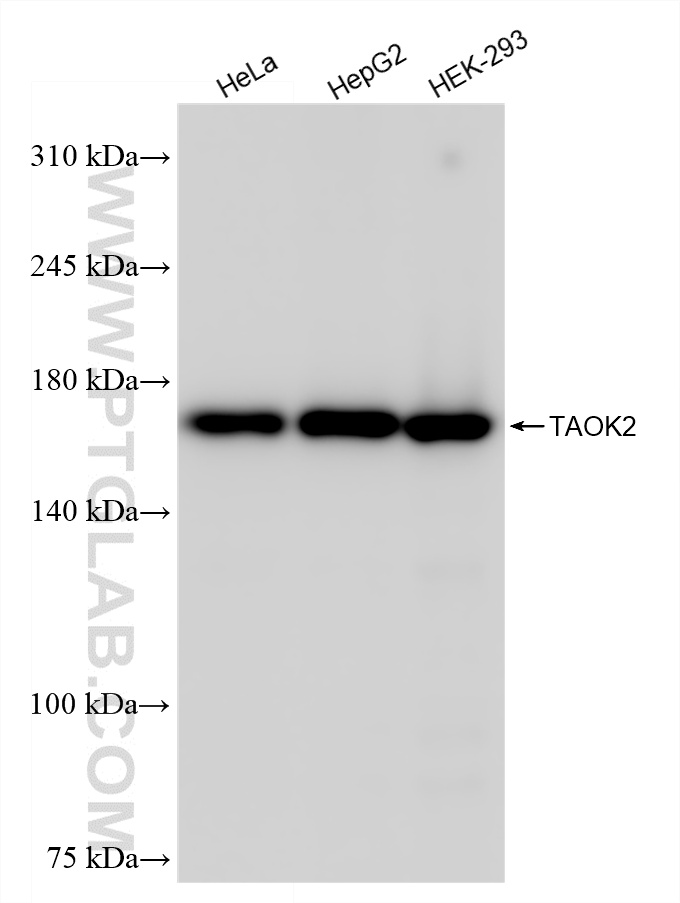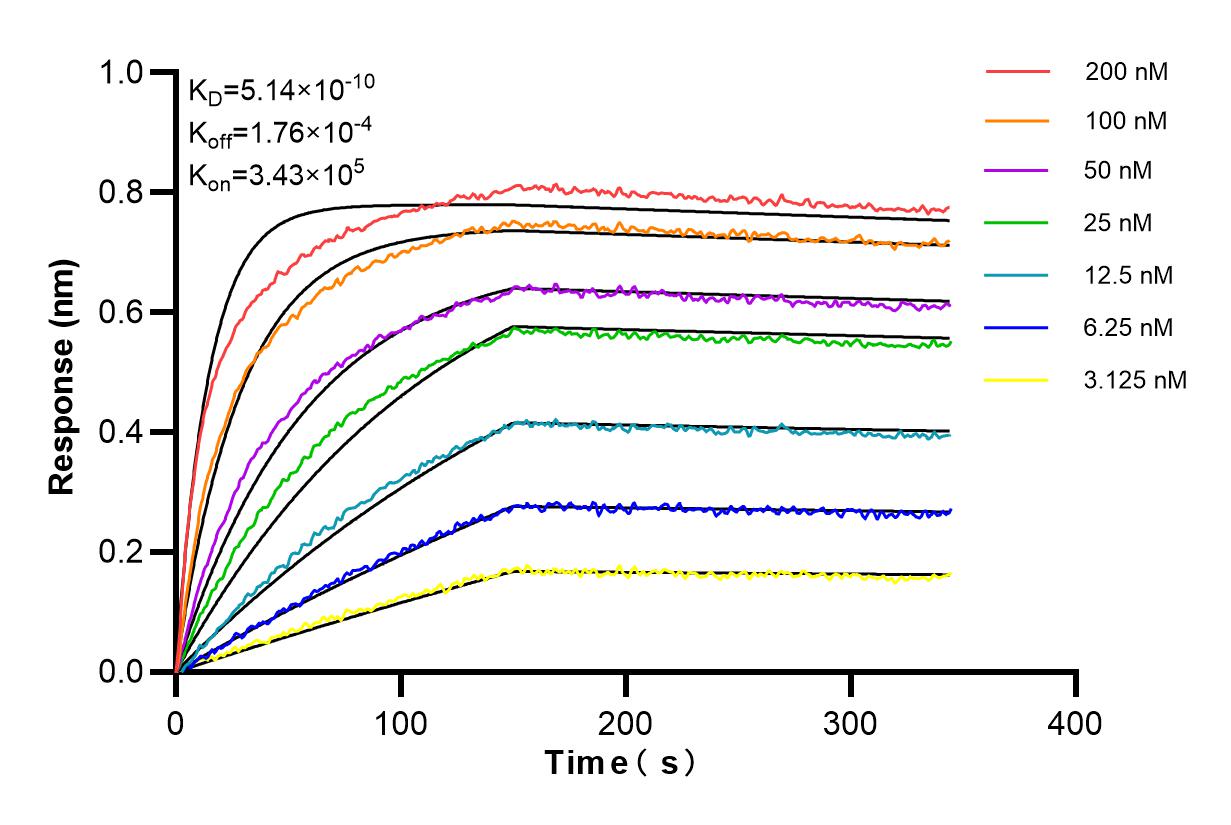验证数据展示
经过测试的应用
| Positive WB detected in | HeLa cells, Hep cells, HEK-293 cells |
推荐稀释比
| 应用 | 推荐稀释比 |
|---|---|
| Western Blot (WB) | WB : 1:1000-1:4000 |
| It is recommended that this reagent should be titrated in each testing system to obtain optimal results. | |
| Sample-dependent, Check data in validation data gallery. | |
产品信息
86221-1-RR targets TAOK2 in WB, ELISA applications and shows reactivity with human samples.
| 经测试应用 | WB, ELISA Application Description |
| 经测试反应性 | human |
| 免疫原 |
CatNo: Ag15521 Product name: Recombinant human TAOK2 protein Source: e coli.-derived, PGEX-4T Tag: GST Domain: 742-969 aa of BC142663 Sequence: SLKVRAGQRPPGLPLPIPGALGPPNTGTPIEQQPCSPGQEAVLDQRMLGEEEEAVGERRILGKEGATLEPKQQRILGEESGAPSPSPQKHGSLVDEEVWGLPEEIEELRVPSLVPQERSIVGQEEAGTWSLWGKEDESLLDEEFELGWVQGPALTPVPEEEEEEEEGAPIGTPRDPGDGCPSPDIPPEPPPTHLRPCPASQLPGLLSHGLLAGLSFAVGSSSGLLPLL 种属同源性预测 |
| 宿主/亚型 | Rabbit / IgG |
| 抗体类别 | Recombinant |
| 产品类型 | Antibody |
| 全称 | TAO kinase 2 |
| 别名 | EC:2.7.11.1, hKFC-C, KIAA0881, MAP3K17, Prostate-derived STE20-like kinase 1 |
| 计算分子量 | 1235 aa, 138 kDa |
| 观测分子量 | 138-150 kDa |
| GenBank蛋白编号 | BC142663 |
| 基因名称 | TAOK2 |
| Gene ID (NCBI) | 9344 |
| 偶联类型 | Unconjugated |
| 形式 | Liquid |
| 纯化方式 | Protein A purification |
| UNIPROT ID | Q9UL54 |
| 储存缓冲液 | PBS with 0.02% sodium azide and 50% glycerol, pH 7.3. |
| 储存条件 | Store at -20°C. Stable for one year after shipment. Aliquoting is unnecessary for -20oC storage. |
背景介绍
TAOK2(Serine/threonine-protein kinase TAO2) is also named as KIAA0881, MAP3K17, PSK, PSK1 and belongs to the protein kinase superfamily. TAOK2 is known to modulate gene transcription via its activation of several MAP kinase pathways, including c-Jun amino-terminal kinase (JNK), and has been implicated in the modulation of actin and microtubule dynamics. The time course of TAOK2 expression is consistent with a role for it in neuronal differentiation.(PMID:22735514). The immunogen of this antibody is 742-969 aa of human TAOK2 protein isoform Alpha.This antibody mainly detects the isoform 1/3/4. It can't detect the isoform 2.
实验方案
| Product Specific Protocols | |
|---|---|
| WB protocol for TAOK2 antibody 86221-1-RR | Download protocol |
| Standard Protocols | |
|---|---|
| Click here to view our Standard Protocols |



